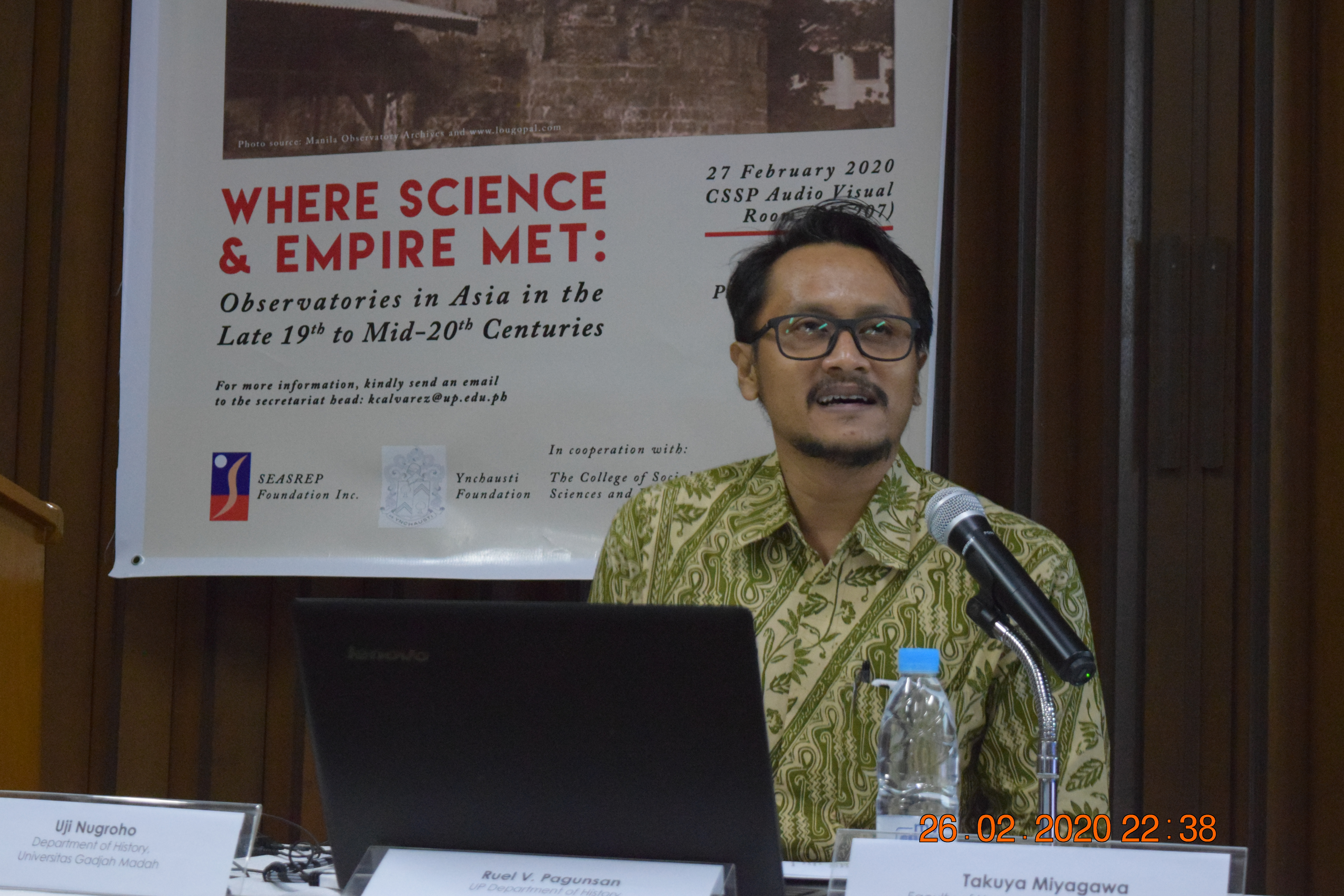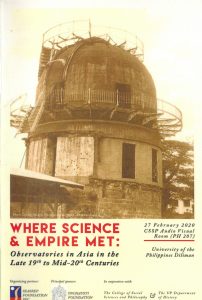
Scope and Goals:
The project aims to examine the role of observatories in Asia as scientific institutions (e.g., as pioneers in the use of scientific instruments, production sites of scientific data); compare the histories and experiences of meteorological observatories in the late 19th to the mid-20th centuries; and understand regional and global developments shaped by international scientific congresses on meteorology and the standardization of scientific practices in observatories.
A workshop was held at the University of the Philippines on February 27-28, 2020. The participants presented their drafts.
Themes:
- Role of observatories as scientific institutions—that is, as pioneers in the use of scientific instruments and as production sites of valuable and necessary scientific data and knowledge—and/or as agencies in the administration of Asian colonies, including trade and shipping;
- Individual histories of the observatories provided these have not yet been written up and published, with focus on the themes listed here;
- Comparative histories of experiences (scientific, bureaucratic, and knowledge politics) of meteorological observatories in Asia during this period;
- Management, funding and sustainability of observatories, including the role of key scientists in the development of the observatories, and issues in the hiring and training of scientific personnel;
- Crucial connection with other important scientific developments such as telegraphy, which enabled the dissemination of scientific information across administrative and trading centers in colonial Asia, and with scientific societies or centers outside the colony;
- Impact of observatories on the colonial administration, trade and shipping and on the region of Asia as a whole; and
- Emergence of a transcolonial meteorological community in Asia in the first half of the 20th century, enabled in part by international scientific congresses on meteorology, the standardization of practices in observatories, and closer cooperation among colonial governments in the understanding of weather.
Participants, Affiliation, Title of Paper:
- Wayne Orchiston and Darunee Lingling Orchiston, National Astronomical Research Institute of Thailand; The Role of Temporary Western Observatories in the Development of Professional Astronomy in Thailand
- Marlon Zhu, Academia Sinica; Fathers to Be Blamed: Media and the Public Accountability of Zikawai’s Typhoon Warnings in Treaty-Port Shanghai
- Uji Nugroho, Universitas Gadjah Madah; Batavia and Lembang Observatories: Creation and Circulation of Science in Colonial Indonesia
- Takuya Miyagawa, Horishima Shudo University; Centres of Calculation?: Colonial Meteorology in Nineteenth Century Japan
- Kerby Alvarez, University of the Philippines – Diliman; Between Two Empires: The Manila Observatory, 1865-1945
- Hoang Anh Thuan and Nguyen Thi Hoia Phuong, Vietnam National University – Hanoi; Servicing Colonial Exploitation: The French Establishment and Management of Phú Lien Observatory, 1899-1945
- Fiona Williamson, Singapore Management University; An Ocean Apart: Meteorology and the Elusive Observatories in British Malaya
- Rajesh Kochhar, Panjab University Chandigarh; Astronomical Observatories in India in the British Period

